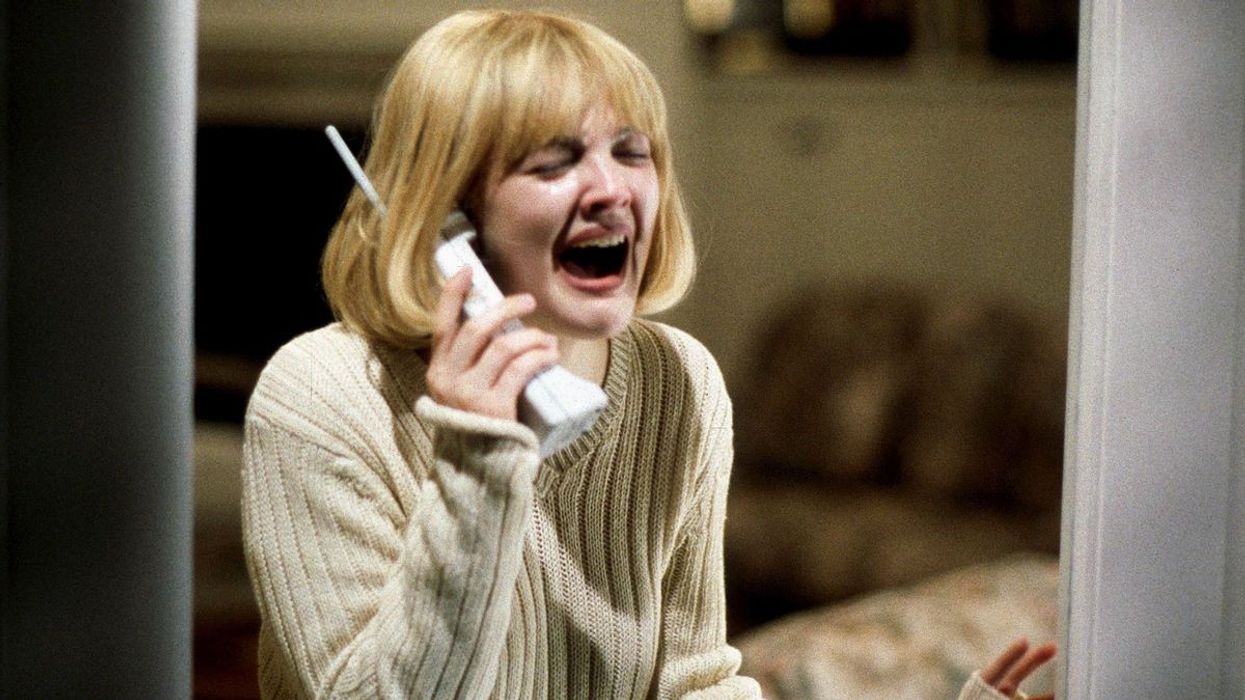You Can Learn About Horror Genres from 'Scream'
It's always the season for horror movie analysis.

Well, it's September, and because 2020 has been such a dumpster fire, I declare it Halloween season. Time for me to obsess over everything and anything horror!
Why not start with Scream? The 1996 film has become a slasher classic and one of the best examples of meta horror storytelling. In the movie, a snarky killer terrifies a group of teens in idyllic, suburban Woodsboro, California.
One of the teens, Randy, is a big horror nerd, and at one point he lectures all his friends about the "rules" for surviving in the genre. His rules are as follows:
- You will not survive if you have sex.
- You will not survive if you drink or do drugs.
- You will not survive if you say "I'll be right back."
- Everyone is a suspect.
But is he right? Do they apply here? And what can those rules teach us about horror as a genre?
Renegade Cut put together a great video essay dissecting the rules established in Scream and whether they are truly accurate. Watch the video below, then check out what we can learn!
Slashers vs. horror
Randy starts out by saying that only the "pure" will survive, specifically virgins and characters who don't drink or do drugs. (I just discussed something similar in a recent article about V/H/S.)
This video goes into several other examples. The conservative, academic Laurie Strode is the "final girl" in Halloween, the only to survive because she's not running off to have sex or party. Meanwhile, the unchaste camp counselors in Friday the 13th quickly get the chop.
But as Renegade Cut points out here, Randy is talking about slashers, not horror in general. Slasher films are a subgenre of horror, and Scream falls into this category.
I mentioned above that Scream is meta-horror. That is, it's aware of itself to some degree, and places its story within the framework of horror as a genre and has characters discuss this outright. It's one of the reasons it works so well. The script knows how to play by the rules, but also how to subvert them.
Sydney has sex, but she's the final girl. Randy drinks, but he survives. There is not one killer, but two working together. Being aware of tropes in horror (or any genre, really) can help you tell a unique, surprising story.

What about morality in other subgenres?
The virginal final girl is not the only trope that horror movies often follow. The video takes brief segues into various subgenres to examine what each values.
The first is gothic horror, which is one of my favorite subgenres. I stayed up way too many nights as a kid reading Edgar Allan Poe.
In those stories, the morality question at play usually is "man vs. God." Do the characters respect God, or instead try to take things over themselves and play God, like the death-defying scientist in Frankenstein? Anyone who opts for the latter is often doomed.
The conservatism of religion can extend to chasteness here, too. But there's usually a more overt theme of faith vs. sin in these older tales. If you're a character who has faith and abides by religious rules, you have a good chance of survival.
Religion is often a major theme in supernatural horror, as well, where stories call on characters of faith to act as heroes. (The Exorcist, anyone?) Characters who have faith usually triumph over supernatural evil.
We can also talk about zombie movies, which usually throw together a ragtag group of heroes who have to band together and cooperate to survive. The values put forward here are cooperation, humanity, and love in the face of a seemingly unstoppable force.

How to apply this knowledge to your own work
There's an interesting framework to be taken from this analysis. As you're brainstorming or outlining a new horror project, consider values vs. sin.
What are your values or the values of society? What rules are in place to ensure a character's survival? Obviously you don't have to make a character monologue about this, but knowing the framework of your story and the path a character must take to reach the end might help.
On the opposite side, what sins are going to be punishable in your story? Maybe it's not the standard promiscuity or teenage drug use. Maybe it's selfishness. Maybe it's disregarding your main character's common sense advice (like the crew of the Nostromo ignoring Ripley in Alien).
Perhaps you take an established framework and turn it on its head for something totally new! But you should probably know which rules you're breaking and which tropes you're subverting for these twists to really land.
What are some other examples of morality from your favorite horror movies? Let us know in the comments!
Source: Renegade Cut











